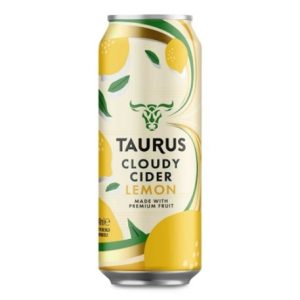Aldi crowned victor in ‘REGENT’ trade mark case
Aldi has finally been victorious in the long-running EU trade mark BISTRO REGENT legal battle.
In a recent Court of Appeal decision, Lord Justice Arnold allowed Thatchers’ appeal against the High Court’s dismissal of their claim under section 10(3) and found that Aldi had infringed their trade mark.
The case concerns the development and sale of cloudy lemon cider.
In February 2020, Thatchers launched their cloudy lemon cider. It was extensively promoted and sold well.
In May 2020, Thatchers filed and subsequently obtained a registration for the following mark, covering cider; alcoholic beverages, except beer in class 33.

In May 2022, Aldi launched their own cloudy lemon cider product in the following packaging;

Thatchers commenced infringement proceedings against Aldi on three grounds. After a two day hearing in the High Court their claims were dismissed and it was decided Aldi had not infringed Thatchers’ rights.
Thatchers appealed the decision under section 10(3), a ground based on reputation of rights.
It was raised in the Court of Appeal decision that Aldi will often see a gap in the market and develop a similar product under their range. They will identify a “benchmark” product, usually a market leader, and this will act as a quality barometer. This is used for both the product and the packaging. In this particular case the only product illustrated by the design agency was Thatchers, with email evidence showing Aldi asking the design agency to “add lemons as Thatchers etc”. The consideration of this along with the assessment of the signs that were being compared led the judges to conclude that the level of similarity was higher than originally decided in the High Court decision.
Aldi has successfully sold cider under the TAURUS brand for a number of years. They created a house style for the product that they used consistently throughout all the variations and flavours sold. However, when they developed the cloudy lemon cider they deviated from their house style, changing three specific parts (as detailed by Lord Justice Arnold in the decision);
As such the judges agreed that this showed Aldi intended to remind consumers of Thatchers when selling their TAURUS product and was done so in a way that tried to convey the message that the Aldi product was like the Thatchers product, only cheaper.
Aldi made significant sales of this product without any promotion. The sales for this product were far higher than their other seasonal ciders and as such Thatchers used this to demonstrate that they had benefitted from creating packaging that was extremely similar to theirs.
Aldi tried to argue that Thatchers’ claim involved trade mark overreach because “their trade mark registration only protects against the use of signs which include elements which are similar to THATCHERS”. However, this was not accepted by the judges as Thatchers had quite clearly filed for the whole look of the packaging and therefore the assessment was made against the whole mark rather than one element of it.
All of the evidence suggested that Aldi did take unfair advantage of the reputation of Thatchers and therefore the judges allowed the appeal and found that Aldi had infringed Thatchers’ trade mark.
Since the decision has been published Aldi have said that they do not agree with the decision and will be appealing. It’s likely that this will not be the last we hear of this case.
It used to be considered that it was hard for Aldi to confuse the average consumer with their “lookalike” house brand because consumers were shopping with the knowledge that they were not getting the genuine product as they were not sold in store. However, as time has gone on Aldi have slowly started to increase the amount of branded products they sell and have therefore blurred the lines of confusion for the average consumer.
Whilst this decision does not create any major changes for the trade mark industry, brand holders need to be aware that courts are taking a more stringent stance on benchmarking and product design. This case indicates that brand holders may now find it easier to successfully take action against companies who produce the lookalike products, even if the marks are not considered confusingly similar.
In addition to registration of word marks, brand holders should also consider registration of packaging. As shown in this case, the overall image of the packaging helped Thatchers and therefore should be considered during product development and subsequent filing strategy.
For more information on this case or other questions regarding trade mark law, please contact one of our attorneys.